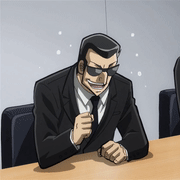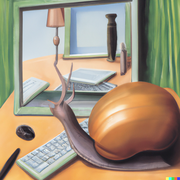|
Apparently now Five Year Plans get theme songs. In English.
|
|
|
|

|
| # ? May 21, 2024 14:25 |
|
Fojar38 posted:Mad is all that they're going to get, since they don't actually have any recourse here short of firing on the US Navy. How is that not sustainable? It's what they wanted to do already and the Aleutian sailthrough was probably a way to goad America into doing a sailthrough of their own so they could have a reason to build and shore up more artificial islands
|
|
|
|
Fojar38 posted:Mad is all that they're going to get, since they don't actually have any recourse here short of firing on the US Navy.
|
|
|
|
coma posted:How is that not sustainable? It's what they wanted to do already and the Aleutian sailthrough was probably a way to goad America into doing a sailthrough of their own so they could have a reason to build and shore up more artificial islands Because the Chinese can't build a new island every time the US Navy transits the SCS. New islands are a lot more expensive than ship fuel. And the Aleutian sailthrough occurred at a time when the Chinese had already built a ton of islands with no apparent justification at all, not sure why you think they'd need "justification" to continue doing what they had already been doing for about a year and a half. Odds are that it was hoped in Beijing that the US would make a fuss about the Aleutian sailthrough in order to shore up support for China's SCS position, but it didn't because the US didn't make a fuss. Furthermore the US publicly stated it was considering sailing close to the islands a couple of months prior to the Aleutian sailthrough. In short you don't seem to actually know much about the SCS dispute.
|
|
|
|
Time for the US to start building a chain of artificial islands from Saipan to Shanghai.
|
|
|
|
Bloodnose posted:Time for the US to start building a chain of artificial islands from Saipan to Shanghai. China thinks its wall is great? Well America's will be yoog and terrific!
|
|
|
|
 PLEASE FIRE ON THE US NAVY PLEASE FIRE ON THE US NAVY  Foreign Policy posted:An Oct. 27 editorial by state news agency Xinhua also endured netizen derision. It claimed that U.S. actions in the region had caused the “indignation of the Chinese people,” and that “China isn’t afraid of trouble.” The piece attracted thousands of comments on Weibo, the most popular of which almost universally ridiculed authorities for not taking action. “If you weren’t afraid of trouble, then you would fire a guided missile to get rid of [America],” went one popular comment. “‘China isn’t afraid of trouble,’ that really cracks me up,” wrote another user in a highly up-voted post. “What it fears most is when mighty foreigners stir up trouble.” Another demanded, “Stop boasting and fight!” Some Chinese people are mad that the PLA isn't willing to shoot guns at America over their dumb islands.
|
|
|
|
Well, that is one way to make your own government look remotely reasonable...
|
|
|
|
I'm not sure if those comments were made in sarcasm or not. I haven't applied the rectal thermometer of rabid fascist neo-nationalism to the bunghole of the Sinosphere in years.
|
|
|
|
China is the fascistest neo-nationalistest country so.
|
|
|
|
Fojar38 posted:Because the Chinese can't build a new island every time the US Navy transits the SCS. New islands are a lot more expensive than ship fuel. "no apparent justification at all" "In short you don't seem to actually know much about the SCS dispute" lol
|
|
|
|
Bloodnose posted:China is the fascistest neo-nationalistest country so. china is basically the worst aspects of 19th Century nationalism, Soviet-style rogue state-ness, and general East Asian shittiness wrapped up into one noxious package
|
|
|
|
icantfindaname posted:china is basically the worst aspects of 19th Century nationalism, Soviet-style rogue state-ness, and general East Asian shittiness wrapped up into one noxious package Not really wrapped so much as excreted onto the sidewalk in a hideous pile for someone else to clean up.
|
|
|
|
.
sincx fucked around with this message at 05:42 on Mar 23, 2021 |
|
|
|
Bloodnose posted:
lol they've completely backed themselves into a corner. Their propaganda machine put so much emphasis on the SCS that when their bluff is called they have to choose between looking like they aren't protecting ~Chinese sovereignty~ or starting a war they can't win with the most powerful country in the world.
|
|
|
|
sincx posted:One argument against mainland China democracy is that if China became democratic on Monday, Japan would be nuked Tuesday due to the propaganda-believing war hungry population. the CCP really isn't doing a very good job at the whole 'not inciting hypernationalist lynchmobs' thing, so the argument that democracy might be worse seems pretty irrelevant
|
|
|
|
Bloodnose posted:
I remember someone telling me to be grateful that China was not democratic, as an emergent China would be like USA v.2, with the Chinese public egging on their politicians to right every slight China suffered the last two hundred years. I however doubt that democratic politicians are more prone to stupid ideas than authoritarian ones.
|
|
|
|
Rincewinds posted:I remember someone telling me to be grateful that China was not democratic, as an emergent China would be like USA v.2, with the Chinese public egging on their politicians to right every slight China suffered the last two hundred years. I however doubt that democratic politicians are more prone to stupid ideas than authoritarian ones. I also think that it's overestimating how many Chinese care about foreign affairs at all, also overestimating how many Chinese buy into the "century of humiliation" narrative.
|
|
|
|
Rincewinds posted:I remember someone telling me to be grateful that China was not democratic, as an emergent China would be like USA v.2, with the Chinese public egging on their politicians to right every slight China suffered the last two hundred years. I however doubt that democratic politicians are more prone to stupid ideas than authoritarian ones. Have you forgotten about the Iraq War?
|
|
|
|
Darkman Fanpage posted:Have you forgotten about the Iraq War? I thought USA was a republic, not a democracy? 
|
|
|
|
Good article in FP by James Palmer on AWW. Ai Weiwei Doesn’t Need Anyone to Give Him Legos quote:The noted Chinese artist and perennial dissident Ai Weiwei recently announced that Lego, a Denmark-based company, had refused his request to purchase more than a million of the tiny toy bricks for an Australian display of his work Trace, a collaborative endeavor with U.K.-based human rights group Amnesty International, that depicts political prisoners around the world in Lego portraits. Ai hit Twitter to rouse his 295,000-plus followers to rally against “censorship” and send him bricks, from which he says he’ll now make a new work.
|
|
|
|
Does AWW have any bad opinions on the level of Solzhenitsyn? Just out of curiosity
|
|
|
|
James Palmer posted:(I should note my personal and professional stakes on both sides of this. I copy-edit for the English edition of the nationalist and Party-backed Global Times, whose editorials have often gone after Ai Weiwei or his supporters. Then again, many of my friends are Western reporters who have covered Ai favorably; some are close to him personally. Not to mention that he sweetly signed my birthday card last year when asked.)
|
|
|
|
I think Palmer along with Matthew Sheehan and Chris Beam are the best English writers in China at the moment. But just weird that Palmer works for the Global Times.
|
|
|
|
It also sounds like he massively overestimates Chinese awareness of Ai Weiwei. I'm not sure if that article is deliberately unclear or just poorly written when it makes it sound like the Chinese press talks about him a lot, but they don't. His stuff about coverage of Ai Weiwei is all reference to the international press. He gets no attention inside China. The overwhelming majority of Chinese have no idea who he is, even before he became an internationally famous artist, you can ask people "who designed the Bird's Nest?" And they won't know. You can ask them "have you ever heard of the poet and architect Ai Weiwei? He designed the Bird's Nest stadium for the 2008 Olympics." Maybe you'll get a "yeah I think so," but more likely to get a shrug. Ai Weiwei is cool and good and this Palmer guy is being a jerk who has read too much Global Times.
|
|
|
|
I read it as him saying that the reason Ai Weiwei is still kicking up trouble is because the CCP lets him because, as you said, Chinese people don't care, and that the foreign media should do a better job of looking at real activism in China.
|
|
|
|
A friend of mine worked in an art Gallery in Shanghai and is heavily involved in the Chinese art scene. Lots of local exhibits just don't deal with him and only the big name with galleries and connections show his work. Galleries in Shanghai get harassed enough from accidentally triggering SARFT or whatever bureau. According to her, subversive anti authoritarian art work has its merits but is relegated to the back burner. Like communist kitsch, political themed art has been around for ages but it is just another avenue to expression in the art world - sometimes the works themselves are just too derivative. According to her, the frequent state intrusions is just seen as an accepted annoyance like a power outage or something. Being angry at CCP is like being angry with your cable/internet provider Oh and then there's this: https://www.youtube.com/watch?v=BHL-0N07rxo Whoops, someone already linked it.
|
|
|
|
Speaking of breaking international treaties, found this on vox http://www.vox.com/cards/war-on-drugs-marijuana-cocaine-heroin-meth/war-on-drugs-international-treaties So what kind of international treaties are constantly broken without people giving a drat? International geo politics is too depressing for me. Everyone government is always having some double standards. All the progress on freedom, expression, civil rights gets rough shod by the status quo and the dirty side of the establishment.
|
|
|
|
Basically anything that has anything to do with the UN.
|
|
|
|
quote:China’s ruling Communist Party will lift its more than three-decade-old one-child policy as President Xi Jinping rolled out his blueprint to manage the economy’s shift to slower, more balanced growth. http://www.bloomberg.com/news/articles/2015-10-29/china-abandons-three-decade-old-one-child-policy-to-lift-growth
|
|
|
|
The one child policy nowadays is not really strictly enforced 1. If the first born is a female, you can have another child 2. If both parents come from a single child household they can have two kids 3. Live in the rural country side where officials don't really go after you 4. Be one of the other ethnic minority and have as many kids as you want 5. Marry someone without a hukou - A hong konger, or a foreigner With the rising cost of living and being stuck in the middle income trap, the city folks are not too keen on having more than 1 kid. The economist had a heart breaking article about left behind kids - children of migrant families who are under the care of grand parents or living under the radar. Basically, kids get hosed up without spending much quality time with their parents. The number of left behind kids in China is near half the population of children and equals the number of kids in USA http://www.economist.com/news/briefing/21674712-children-bear-disproportionate-share-hidden-cost-chinas-growth-little-match-children quote:TOWARDS the end of “Jude the Obscure”, Thomas Hardy’s final novel, comes one of the most harrowing scenes in English literature. Jude, an itinerant labourer struggling to feed his family, returns home to find his eldest son has hanged himself and his younger siblings from the coat hook on the back of the door. A note says “Done because we are too menny.”
|
|
|
|
Bloodnose posted:Basically anything that has anything to do with the UN. So much for the validity of UN's ICCPR as a fail-safe option for civil rights in Hong Kong 
|
|
|
|
My wife is 'twins' of her brother, even though he was born a year later. Just bribe the doctor. And yeah, rural area, nobody cares. 天高皇帝远。
|
|
|
|
caberham posted:
I thought this was a rural only thing, or maybe that was just when my friend was born (~1990). Actually the way I understood it is that if you had a girl, you could keep on trying until you had a boy. So my friend mentioned that she knows a bunch of people with like 3-4 daughters and maybe a son. computer parts fucked around with this message at 12:26 on Oct 29, 2015 |
|
|
|
The policies aren't really enforced much anymore... until they are. If you're unlucky and your local party secretary wants to make a name for himself, he might decide to start enforcing it and that's how you ended up with 9,000 women forcibly sterilized in Puning a few years ago. Or that one lady in Shanxi who was forced to have an abortion and spread the picture of her dead third trimester fetus that she had to stillbirth out of herself all over Weibo. Sometimes China's a hilarious case of incompetence and street making GBS threads. Sometimes it's seriously hosed up and we shouldn't forget about the second part.
|
|
|
|
Oh Christ that article on the children. I was raised in a rural area there. I wonder if my life would have been that lovely if my parents werent as successful as they are. 
|
|
|
|
.
sincx fucked around with this message at 05:42 on Mar 23, 2021 |
|
|
|
Bloodnose posted:The policies aren't really enforced much anymore... until they are. If you're unlucky and your local party secretary wants to make a name for himself, he might decide to start enforcing it and that's how you ended up with 9,000 women forcibly sterilized in Puning a few years ago. Or that one lady in Shanxi who was forced to have an abortion and spread the picture of her dead third trimester fetus that she had to stillbirth out of herself all over Weibo. What I meant was the policy itself had loop holes. Nowadays those loops holes don't matter because it's a 2 child policy now I guess. Force sterilization is still a thing , and families could have 2 kids under certain conditions. Except party members or people who worked in government jobs - 1 kid is the ideal. Speaking of ideals, unmarried sex for teachers is a bad thing and leaves a bad record for public school teachers. And when it comes to family planning, you actually need permission from the state to marry and permission from the state to have a child. sincx posted:All smoke, no fire? It's always a false alarm.
|
|
|
|
caberham posted:What I meant was the policy itself had loop holes. Nowadays those loops holes don't matter because it's a 2 child policy now I guess. Until you have three children and your local Party Secretary decides to be a dick.
|
|
|
|

|
| # ? May 21, 2024 14:25 |
|
Darkman Fanpage posted:Have you forgotten about the Iraq War? Authoritarian governments have of course never gotten involved in quagmires of foreign wars.
|
|
|


























